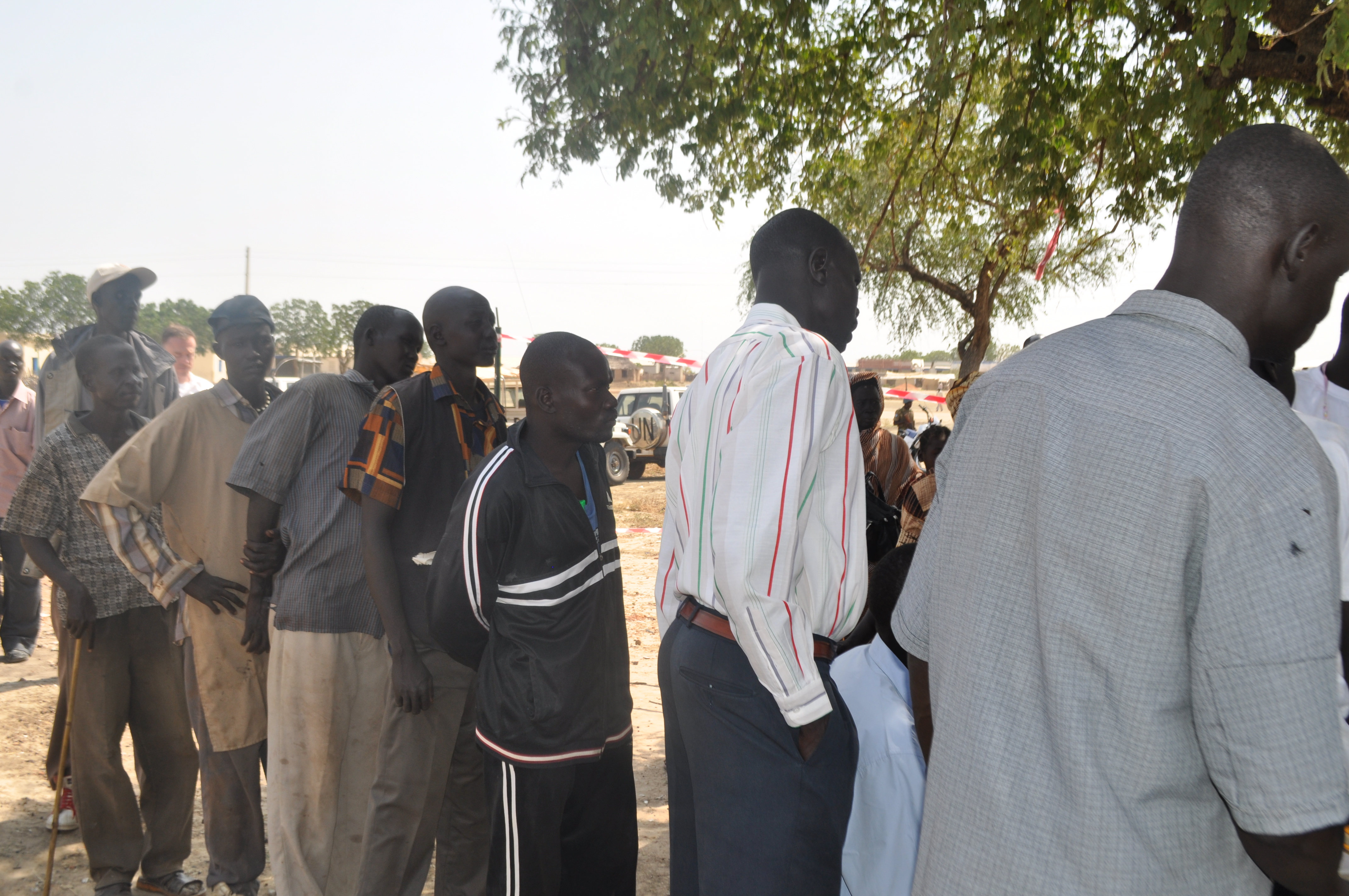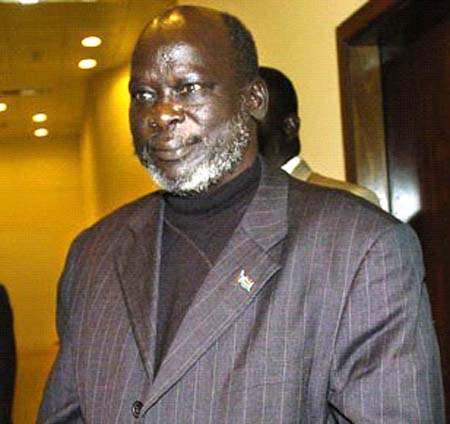|
South Kordofan
South Kordofan ( ') is one of the 18 States of Sudan, wilayat or states of Sudan. It has an area of 158,355 km2 and an estimated population of approximately 2,107,623 people (2018 est). Kaduqli is the capital of the state. It is centered on the Nuba Hills, Nuba Mountains. At one time it was supposed that South Kordofan was the only state in (North) Sudan suitable for producing oil, but oil has also been discovered in neighboring White Nile State in larger quantities. Under the Comprehensive Peace Agreement, residents of South Kordofan were to hold popular consultations in 2011 to determine the constitutional future of the state. However, South Kordofan governor Ahmed Haroun suspended the process and violence followed. Haroun had previously been charged with war crimes against civilians and crime against humanity by the International Criminal Court. History Although South Kordofan is part of Sudan, it is home to many pro-South Sudan communities, especially in the Nuba Mount ... [...More Info...] [...Related Items...] OR: [Wikipedia] [Google] [Baidu] |
Sudanese Conflict In South Kordofan And Blue Nile
The Sudanese conflict in South Kordofan and Blue Nile was an armed conflict and insurgency in the Sudanese states of South Kordofan and Blue Nile (state), Blue Nile (known as the Two Areas) between the Sudanese Armed Forces (SAF) and the Sudan People's Liberation Movement–North (SPLM-N), a northern offshoot of the Sudan People's Liberation Movement (SPLM) in now neighbouring South Sudan. After some years of relative calm following the Comprehensive Peace Agreement, 2005 agreement which ended the second Sudanese civil war between the Sudanese government and SPLM rebels, fighting broke out again in the lead-up to South Sudan's independence on 9 July 2011, starting in South Kordofan on 5 June and spreading to the neighboring Blue Nile state in September. SPLM-N, splitting from newly independent SPLM, took up arms against the retained inclusion of the two southern states in Sudan with no popular consultation and against the lack of democratic elections. The conflict is intertwined wi ... [...More Info...] [...Related Items...] OR: [Wikipedia] [Google] [Baidu] |
States Of Sudan
Below is a list of the 18 states of the Sudan (Arabic names are in parentheses). Prior to 9 July 2011, the Republic of the Sudan was composed of 25 states. The ten southern states now form part of the independent country of South Sudan. Two additional states were created in 2012 within the Darfur region, and one in 2013 in Kordofan, bringing the total to 18. States of the Republic of the Sudan The following 18 states form the territory of the Republic of the Sudan: The 10 states of South Sudan were part of the Republic of Sudan until 2011 when South Sudan became an independent country. Special administrative areas * The Abyei, Abyei Area, located on the border between South Sudan and the Republic of the Sudan, currently has a special administrative status and is governed by an Abyei Area Administration. It was due to hold a Abyei status referendum, referendum in 2011 on whether to be part of South Sudan or part of the Republic of Sudan. Regional bodies In addition to the st ... [...More Info...] [...Related Items...] OR: [Wikipedia] [Google] [Baidu] |
International Criminal Court
The International Criminal Court (ICC) is an intergovernmental organization and International court, international tribunal seated in The Hague, Netherlands. It is the first and only permanent international court with jurisdiction to prosecute individuals for the International criminal law, international crimes of genocide, crimes against humanity, war crimes, and the crime of aggression. The ICC is distinct from the International Court of Justice, an United Nations System, organ of the United Nations that hears disputes between states. Established in 2002 pursuant to the multilateral Rome Statute, the ICC is considered by its proponents to be a major step toward justice, and an innovation in international law and human rights. The Court has faced #Criticism and opposition, a number of criticisms. Some governments have refused to recognize the court's assertion of jurisdiction, with other civil groups also accusing the court of bias, Eurocentrism and racism. Others have also que ... [...More Info...] [...Related Items...] OR: [Wikipedia] [Google] [Baidu] |
Talodi
Talodi () is a small town in the Nuba Mountains, and a district of South Kordofan state, in southern Sudan Sudan, officially the Republic of the Sudan, is a country in Northeast Africa. It borders the Central African Republic to the southwest, Chad to the west, Libya to the northwest, Egypt to the north, the Red Sea to the east, Eritrea and Ethiopi .... The town is nearly 650 km (406 miles) southwest of Khartoum. Its name is from the Talodi people of the area who speak the Talodi language. A British garrison was located in Talodi during the colonial period, and an independence outbreak occurred in 1906. The 2012 Sudan Antonov An-26 crash, which killed 32 people on 19 August 2012, took place near the town. References Populated places in South Kordofan Districts of Sudan {{Sudan-geo-stub ... [...More Info...] [...Related Items...] OR: [Wikipedia] [Google] [Baidu] |
Abu Jubaiyah District
Abu Jubaiyah is a district of South Kordofan state, Sudan Sudan, officially the Republic of the Sudan, is a country in Northeast Africa. It borders the Central African Republic to the southwest, Chad to the west, Libya to the northwest, Egypt to the north, the Red Sea to the east, Eritrea and Ethiopi .... References Districts of Sudan {{Sudan-geo-stub ... [...More Info...] [...Related Items...] OR: [Wikipedia] [Google] [Baidu] |
Rashad District
Rashad is a district of South Kordofan state, Sudan Sudan, officially the Republic of the Sudan, is a country in Northeast Africa. It borders the Central African Republic to the southwest, Chad to the west, Libya to the northwest, Egypt to the north, the Red Sea to the east, Eritrea and Ethiopi .... Climate References Districts of Sudan {{Sudan-geo-stub ... [...More Info...] [...Related Items...] OR: [Wikipedia] [Google] [Baidu] |
Dalang, Sudan
Dalang () or Dilling is a town in South Kordofan State in Sudan, north of the state capital Kadugli. As of 2008 it had a population 59,089 people. In printed sources and internet sources, including maps and atlases, the town's name is usually spelled as ''Dilling'', reflecting the local pronunciation �dɪlɪŋ The spellings ''Dalang'' and ''Dalanj'' reflect a pronunciation adapted to the phonotactics of Arabic. Geography Dilling is located about south of El Obeid, the state capital of North Kordofan State. The town has a lake in the northeastern part of the same name. An asphalted road links Dilling to Khartoum via Kosti and El Obeid, and another all-season road links Dilling to Kadugli. There is a railway station in the north of the town on a branch line to Debeibat. Dilling Airport is to the southeast of the town. Demography The town is inhabited mainly by Nuba The Nuba people are indigenous inhabitants of southern Sudan. The Nuba are made up of 50 various indigenous ... [...More Info...] [...Related Items...] OR: [Wikipedia] [Google] [Baidu] |
United Nations Interim Security Force For Abyei
The United Nations Interim Security Force for Abyei (UNISFA) is a United Nations peacekeeping force in Abyei, which is contested between the Republic of Sudan and the Republic of South Sudan. UNISFA was approved on 27 June 2011 by the United Nations Security Council in United Nations Security Council Resolution 1990 after a flareup in the South Kordofan conflict earlier in June 2011. The Ethiopian Army was the largest contributor of personnel, and until 2022, the only contributor of individual troops. In February 2022 UNISFA was reconfigured into a multinational force with the arrival of a Ghanaian Battalion under Major Enoch Awudu. As a multinational force troops from a number of other countries have served in Abeyei, including Ghana, Nepal and Vietnam. History The peacekeepers began arriving in Abyei on 15 July 2011 after traveling overland from Ethiopia, just under a week after South Sudan formally declared its independence. The UNISFA mandate has been renewed annually since ... [...More Info...] [...Related Items...] OR: [Wikipedia] [Google] [Baidu] |
Ethiopia
Ethiopia, officially the Federal Democratic Republic of Ethiopia, is a landlocked country located in the Horn of Africa region of East Africa. It shares borders with Eritrea to the north, Djibouti to the northeast, Somalia to the east, Kenya to the south, South Sudan to the west, and Sudan to the northwest. Ethiopia covers a land area of . , it has around 128 million inhabitants, making it the List of countries and dependencies by population, thirteenth-most populous country in the world, the List of African countries by population, second-most populous in Africa after Nigeria, and the most populous landlocked country on Earth. The national capital and largest city, Addis Ababa, lies several kilometres west of the East African Rift that splits the country into the African Plate, African and Somali Plate, Somali tectonic plates. Early modern human, Anatomically modern humans emerged from modern-day Ethiopia and set out for the Near East and elsewhere in the Middle Paleolithi ... [...More Info...] [...Related Items...] OR: [Wikipedia] [Google] [Baidu] |
Abyei
The Abyei Area () is an area of on the border between South Sudan and Sudan that has been accorded "special administrative status" by the 2004 Protocol on the Resolution of the Abyei Conflict (Abyei Protocol) in the Comprehensive Peace Agreement (CPA) that ended the Second Sudanese Civil War.“Protocol on the resolution of Abyei conflict” Government of the Republic of Sudan and the Sudan People’s Liberation Movement/Army, 26 May 2004 (hosted by reliefweb.int) The capital of the Abyei Area is Abyei (town), Abyei Town. Under the terms of the Abyei Protocol, the Abyei Area is considered, on an interim basis, to be simultaneously part of both the South Sudan, Republic of South Sudan and Sudan, Republic of Sudan, effectively a condominium (international law), condomini ... [...More Info...] [...Related Items...] OR: [Wikipedia] [Google] [Baidu] |
Southern Sudan Autonomous Region (2005–2011)
Southern Sudan ( ''Ḥukūmat Janūb as-Sūdān;'' Dinka: Lɔ̈k Bïkrotmac Paguot Thudän) was an autonomous region consisting of the ten southern states of Sudan between its formation in July 2005 and independence as the Republic of South Sudan in July 2011. The autonomous government was initially established in Rumbek and later moved to Juba. It was bordered by Ethiopia to the east; Kenya, Uganda, and the Democratic Republic of the Congo to the south; and the Central African Republic to the west. To the north lies the predominantly Arab and Muslim region directly under the control of the central government. The region's autonomous status was a condition of a peace agreement between the Sudan People's Liberation Army/Movement (SPLA/M) and the Government of Sudan represented by the National Congress Party ending the Second Sudanese Civil War. The conflict was Africa's longest running civil war. History Egypt, under the rule of Khedive Isma'il Pasha, first attempted to colo ... [...More Info...] [...Related Items...] OR: [Wikipedia] [Google] [Baidu] |



